When autumn arrives, the Western world welcomes a traditional holiday when children enjoy dressing up as adorable ghosts and monsters. This year, a trending joke emerged online: “Why bother dressing up? I’m already gnawed by resentment.” Some suggest dressing as an overworked employee, others as sleep-deprived students before exams, or as exhausted parents gripped by clingy toddlers. As they vent their grievances in these creative and witty ways, this autumn feels a little "unhappy." It seems that our "life" itself has become "frightening." Making a virtue of necessity has become a humorous form of self-expression.
But if you’ve ever sat inside the home of an at-risk child in a rural village, you’d gain a new understanding of what real "unfairness" means.
In the city, hiking is a form of exercise or sightseeing. But for 6-7 year-old children in the mountains, “climbing” is the only way to get to school. Perhaps, it is also the only way forward in life. Every day, for four hours, they cross three mountains, braving the cold, heat, wind, and snow for over a decade—just to see a world beyond the hills.
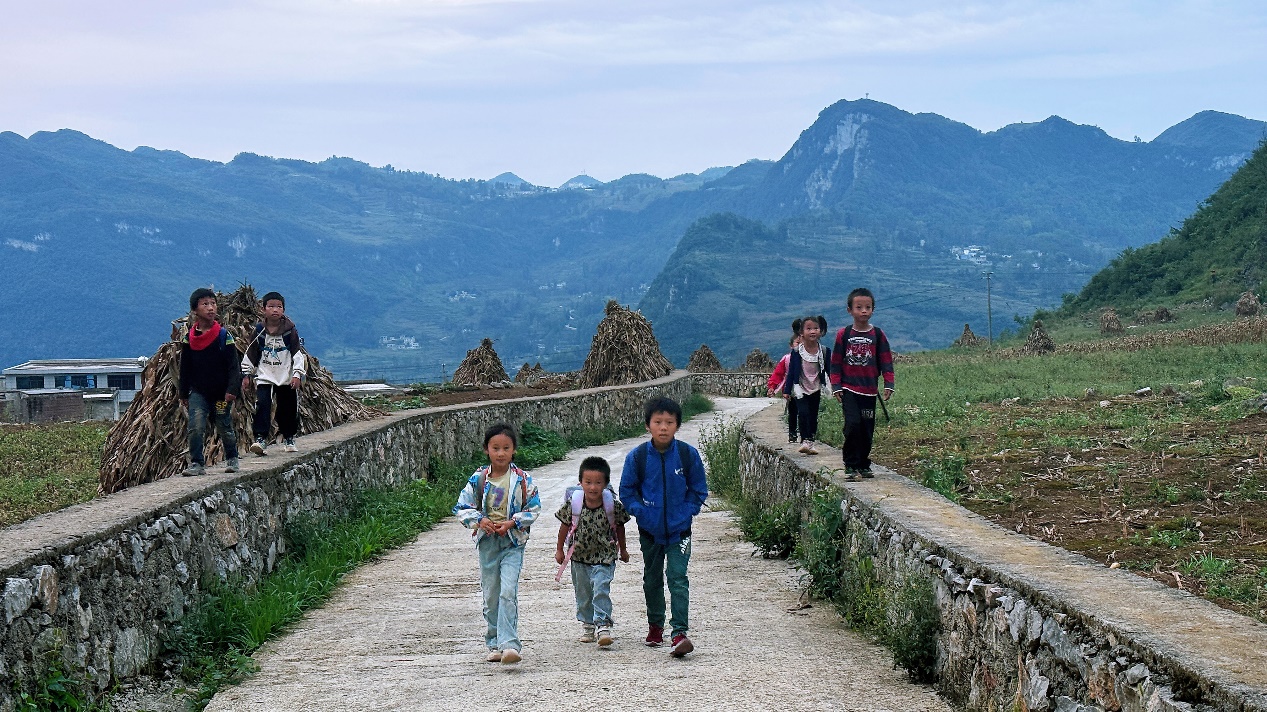
Seven siblings walking on the long
road to school
For them, each day’s journey is more than a physical challenge—it is also a climb against fate itself.
When we walked with them along their school route, panting and exhausted, we asked the youngest sister, who was only seven years old, “Aren’t you tired?” She smiled and said, “No.” Every day, they leave home at 5:00 AM and arrive at school after 7:00 AM. At those hours, their peers in the city are still curled up in warm blankets, whining about breakfast options.
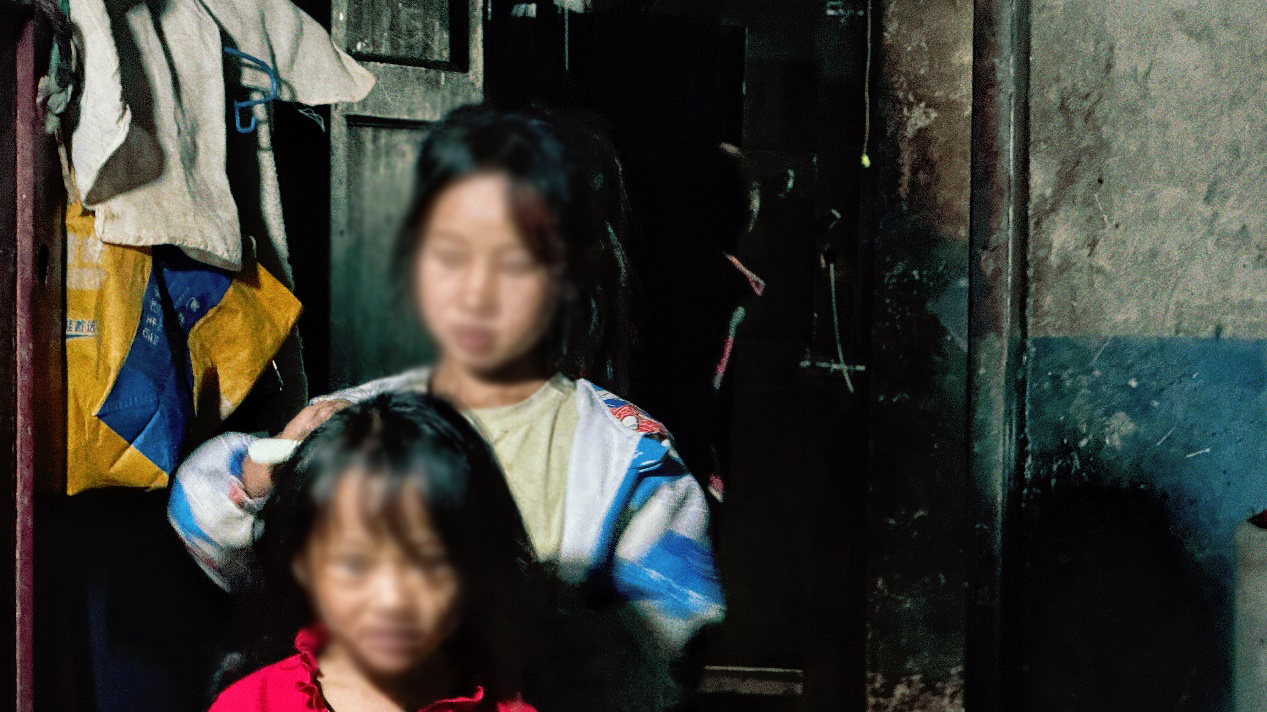
The seven siblings’ grandmother, suffering from a tumor, sees them off in the morning
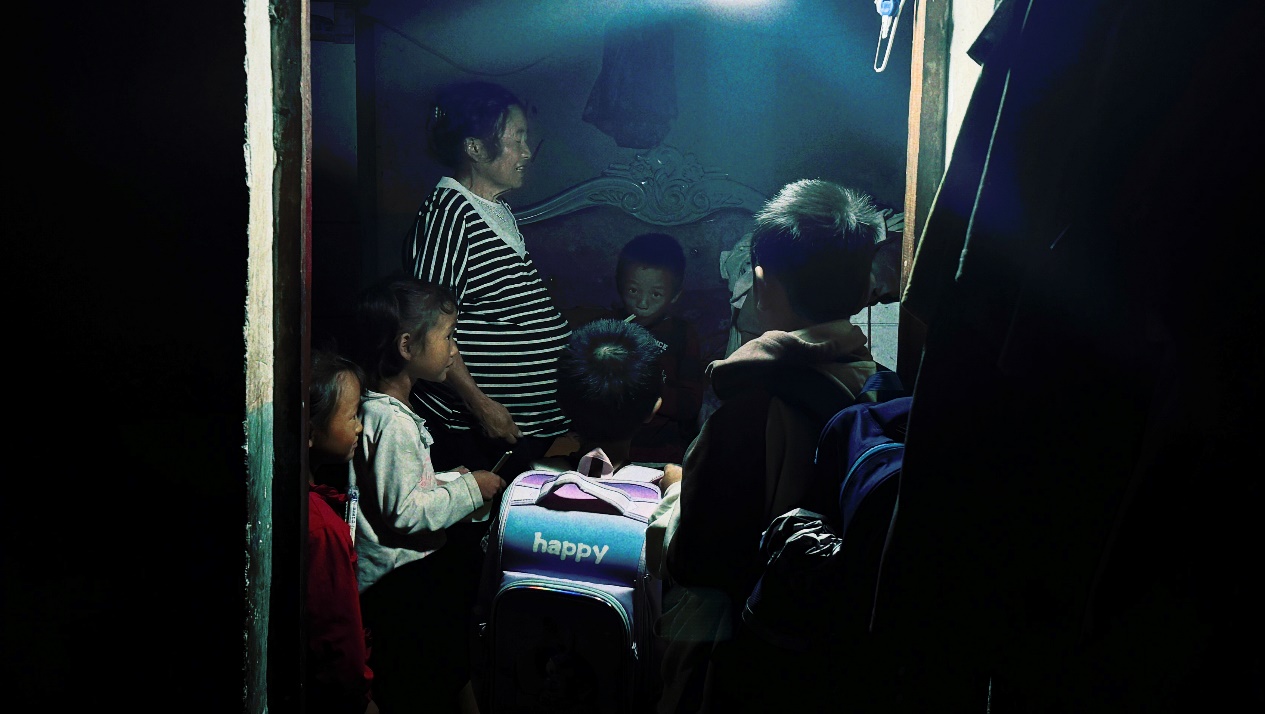
Their eldest brother heats up breakfast while his younger siblings line up to eat
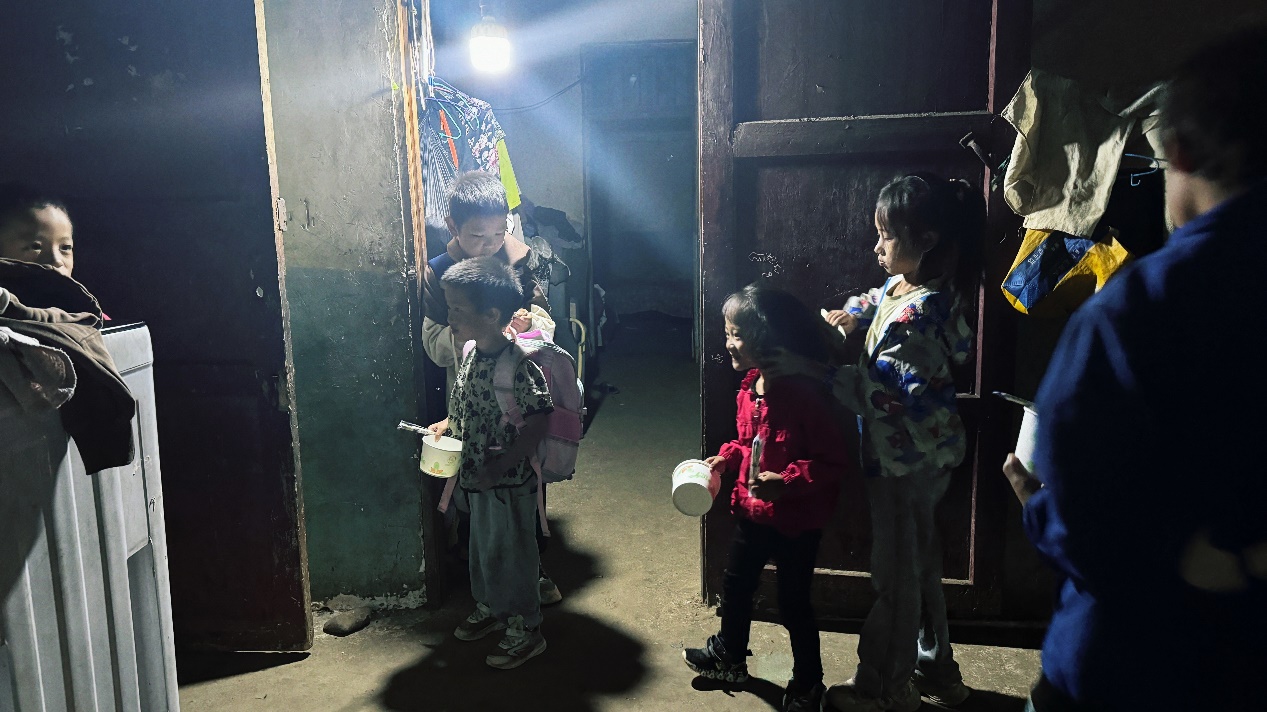
Their eldest brother heats up breakfast while his younger siblings line up to eat
Every morning, by the time they cross the second mountain, they can see the sunrise. And when the sunlight shines on their faces, you begin to understand why "hope" is always associated with "light." They emerge from the darkness each day, walking toward the future.
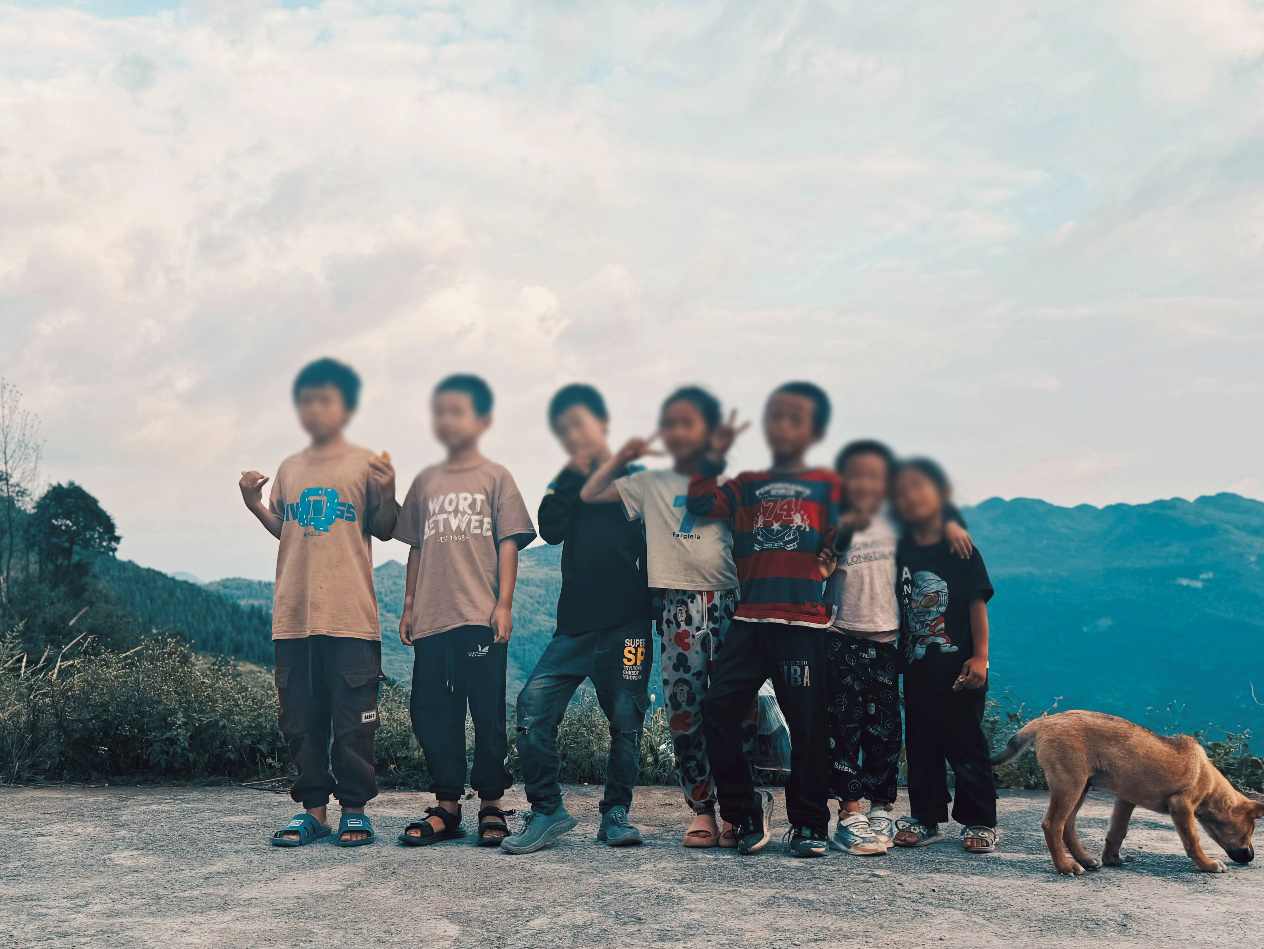
Seven siblings take a photo at the village entrance
The youngest sister lives with her six siblings, under the care of their grandparents. In their dimly lit home, they sleep in shifts on a few old beds. Besides those beds, there is a shabby dining table and a couple of chairs. The home is always cramped with the children around. “Grandpa drinks a lot and is always in a daze. Grandma has a tumor in her belly. She went to the provincial hospital a few years ago, but the doctors said there was nothing they could do,” said the little girl. The “future” is something people look forward to. But for this family, the future is a looming shadow.
Seven-year-old Xiaojun has never met his father, who was missing after he left the family. His mother remarried, leaving him to be raised by his grandmother. His “child-friendly room” has no roof. He loves reading, but he reads one book—his school textbook over and over again because he has no other extracurricular books.
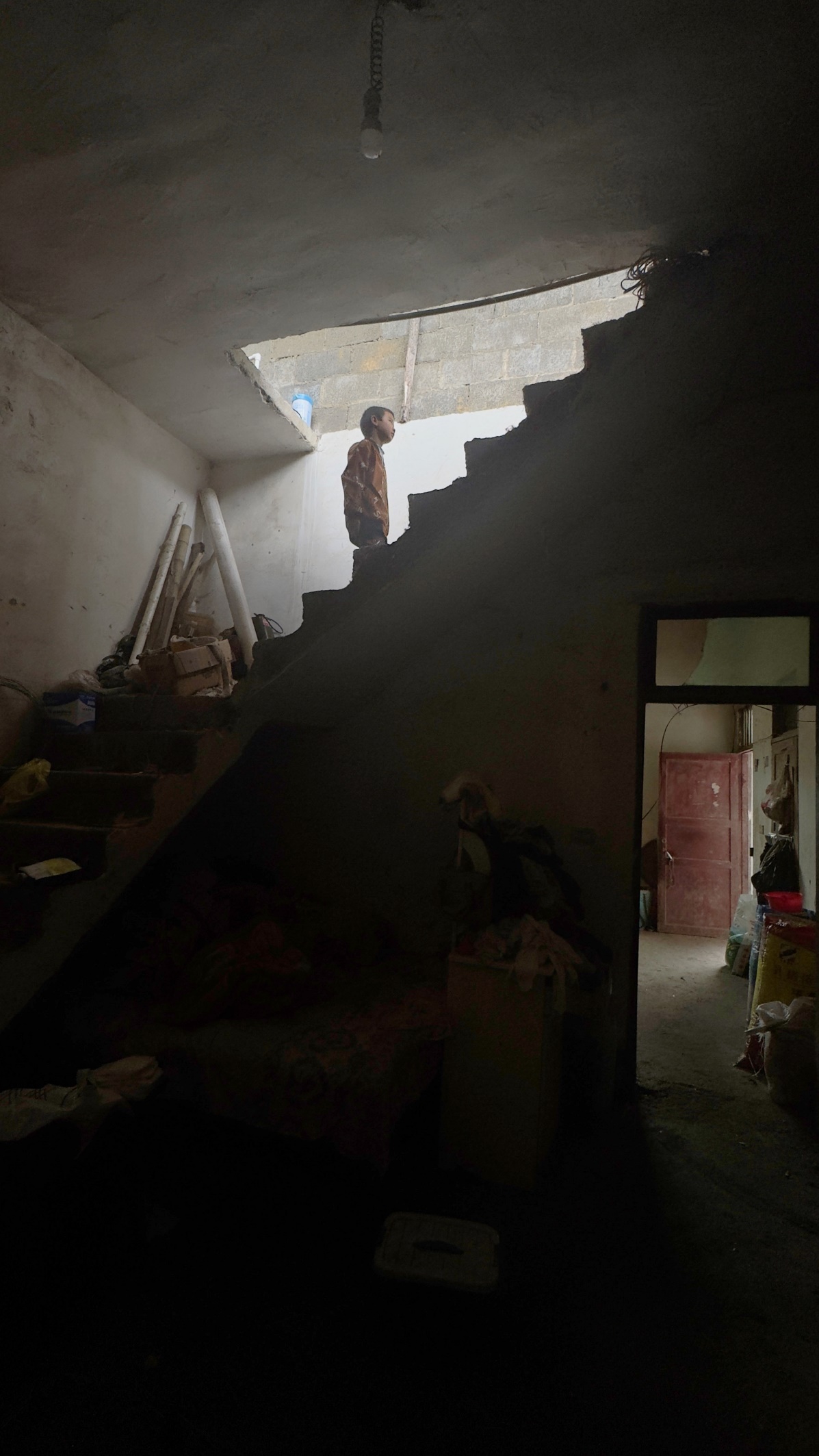
Xiaojun lives in a roofless space under the stairs
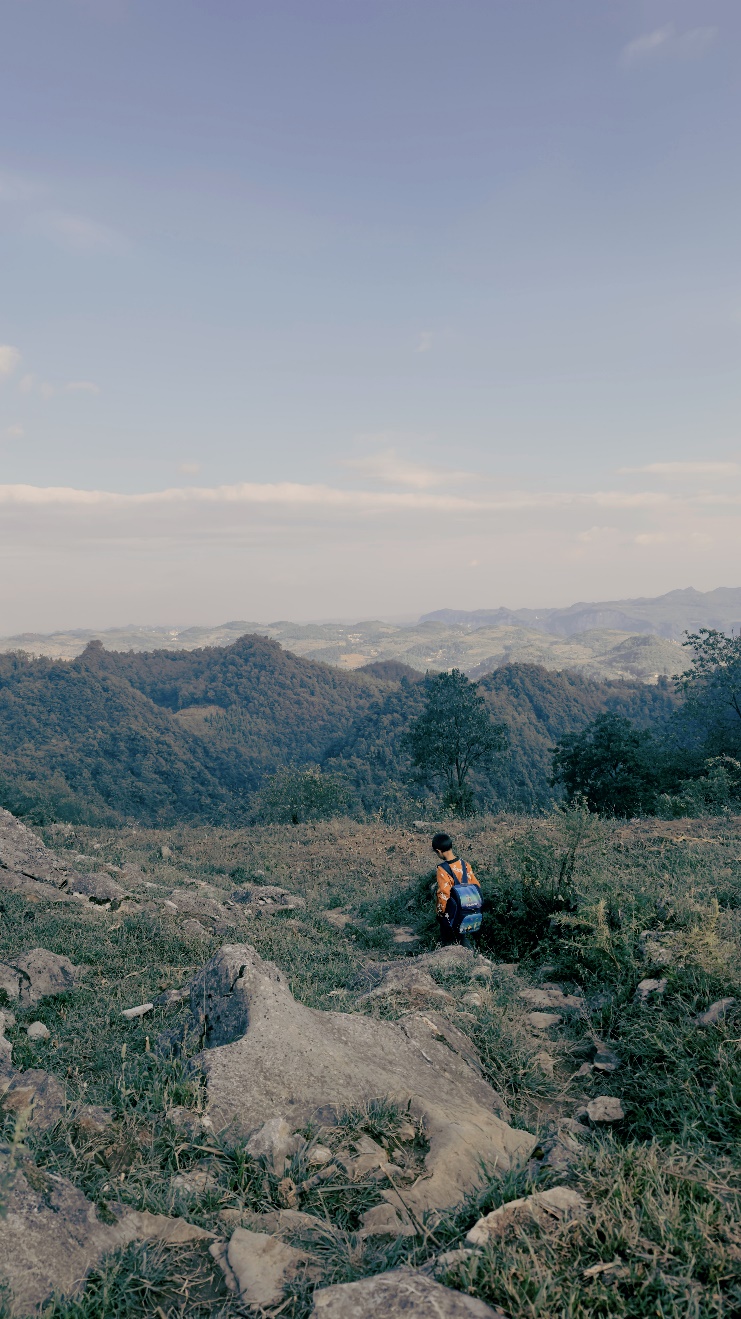
Xiaojun walks from school to home
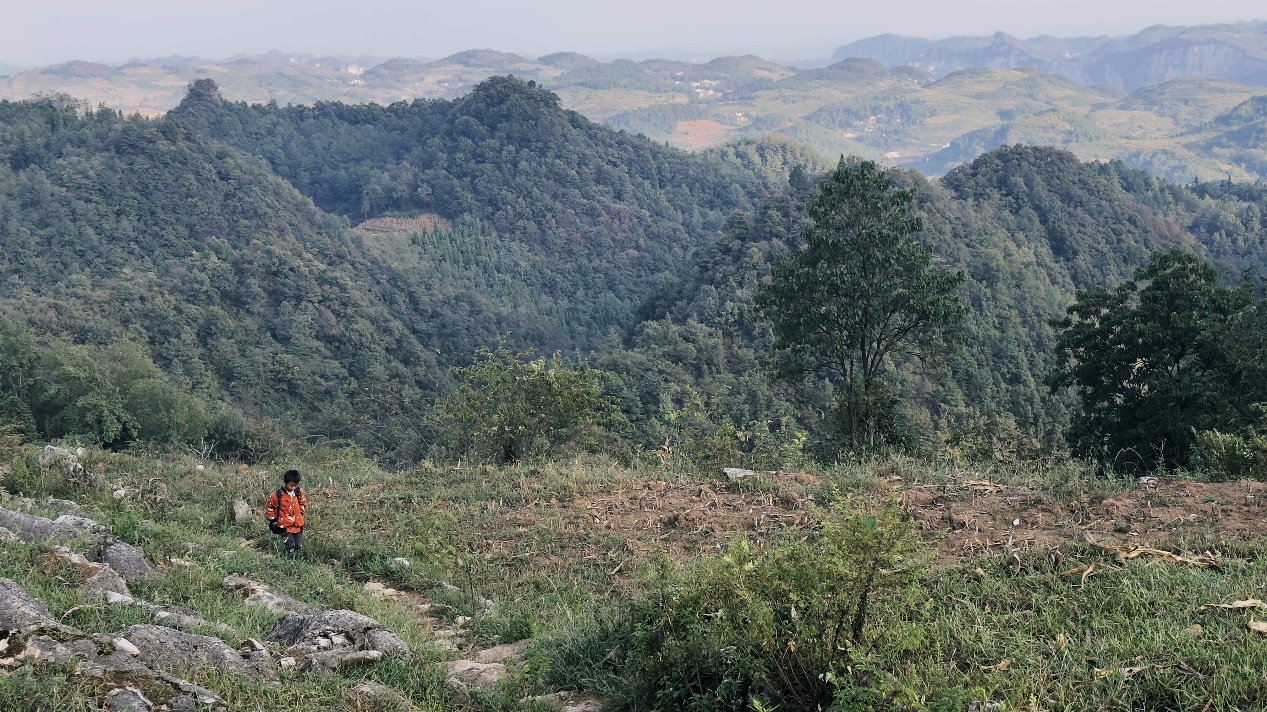
Xiaojun looks for his family’s cattle on the hillside
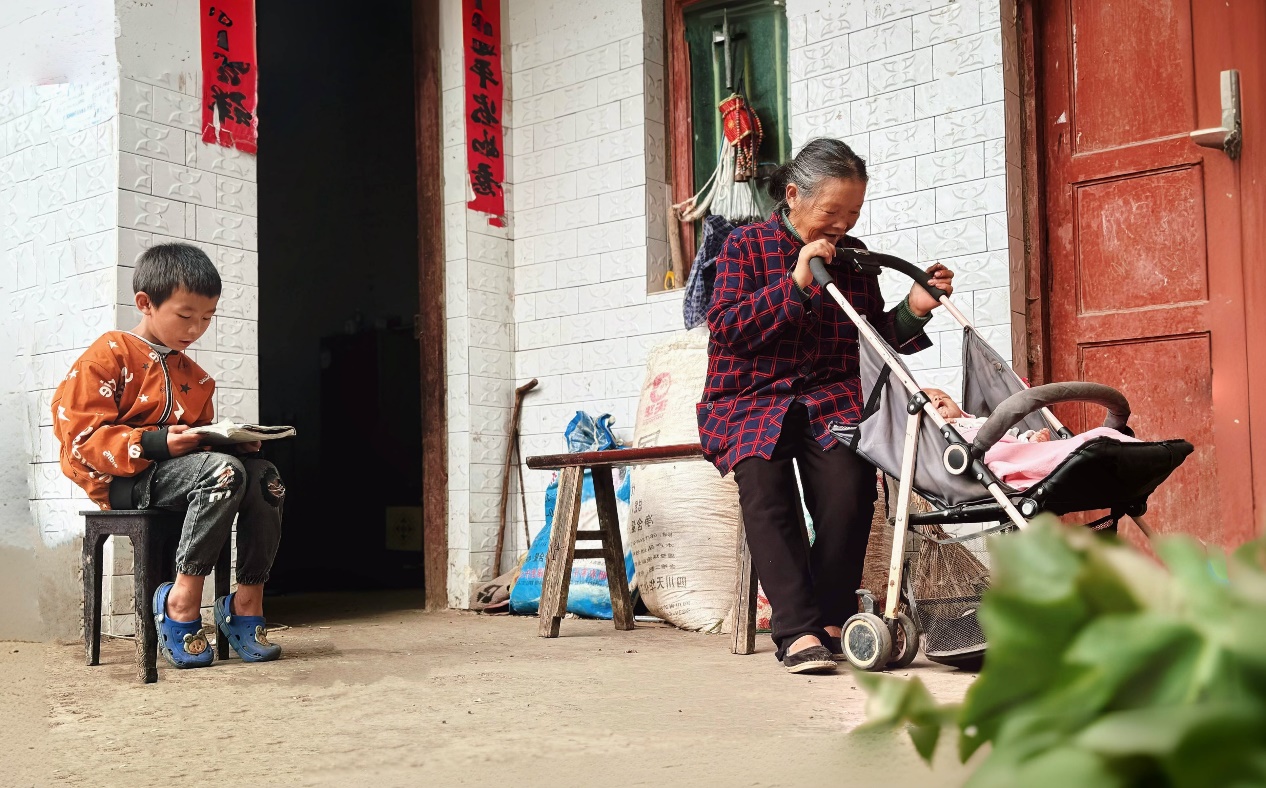
Xiaojun reads his Chinese textbook in the courtyard
Five-year-old Jinjin is supposed to start elementary school next year, but no one in her family has noticed that she could barely speak. Her grandfather broke his leg while working as a laborer, her grandmother—almost 80 years old—struggles to manage the household, and her mother, suffering from mental impairment, is rarely lucid. Her four-year-old brother always runs barefoot in the yard, while her baby sister, just over a year old, still depends on formula milk—the biggest financial burden of the family.
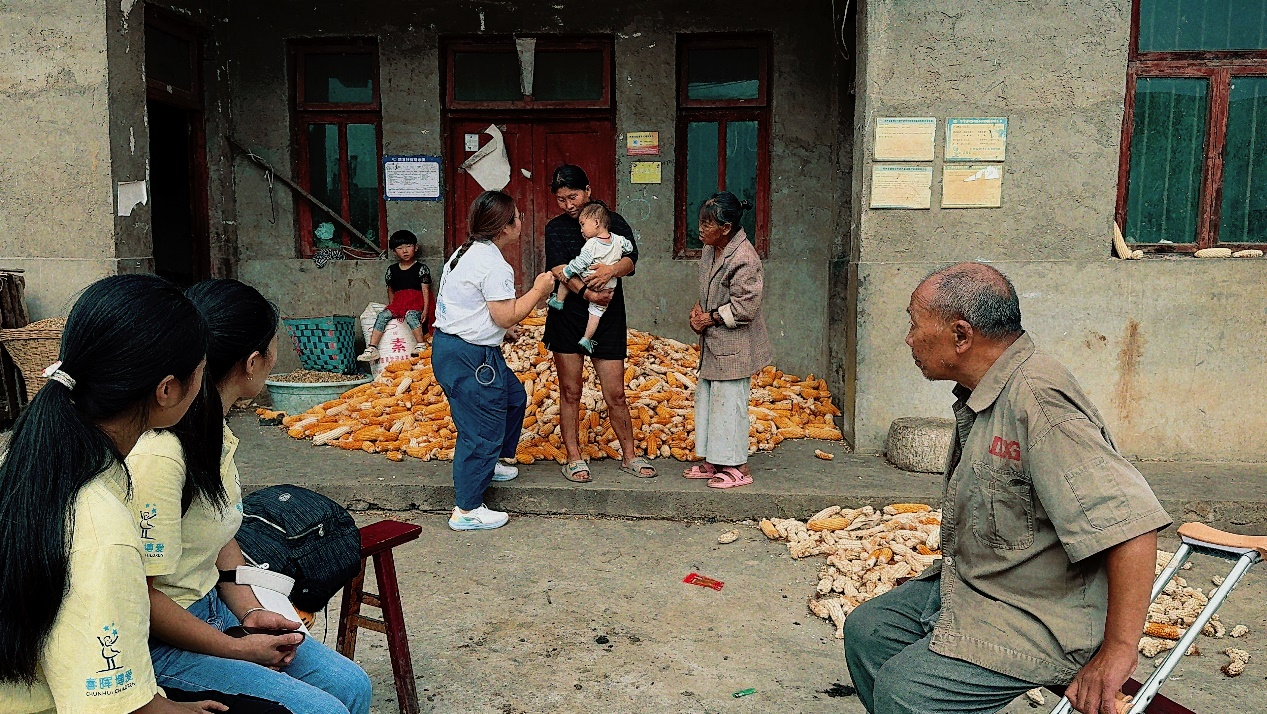
Chunhui social workers visit Jinjin’s home
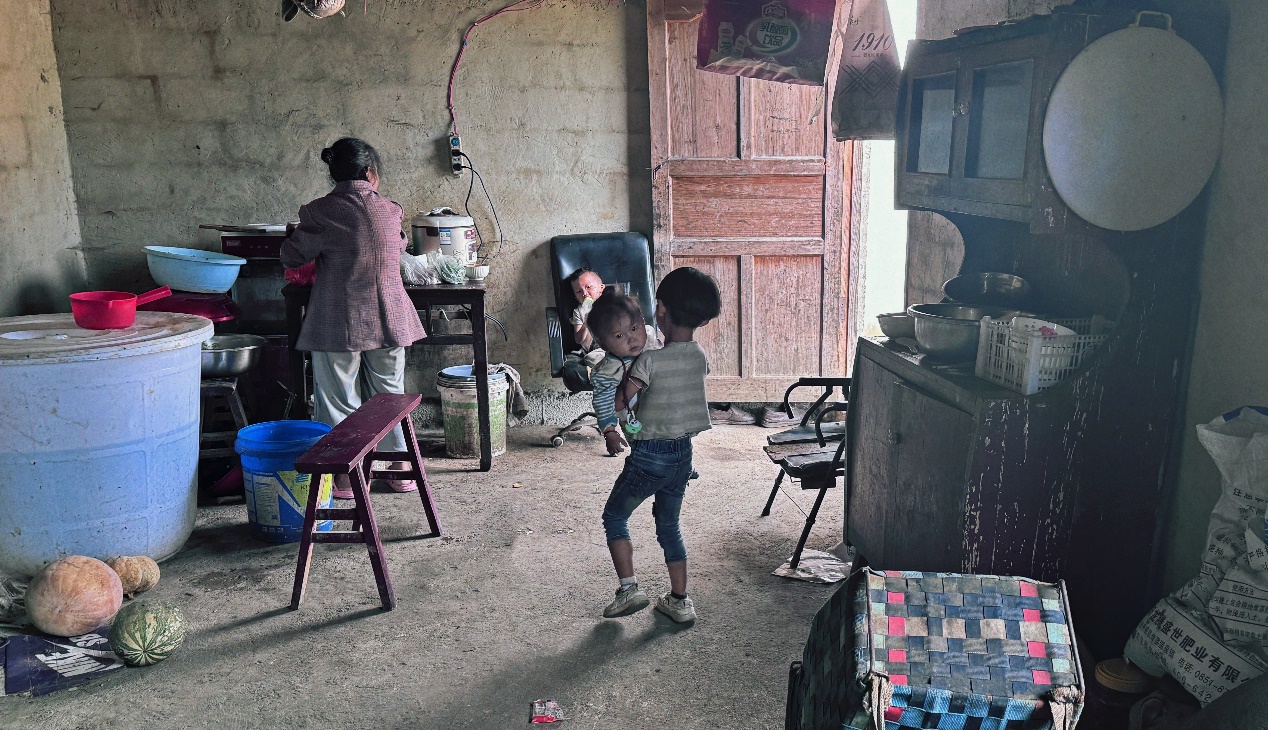
Jinjin’s grandmother prepares lunch
Like children of this family, millions of others in the mountains are struggling against the hardships of their life. They are at-risk children and their struggles are not easily resolved. Most of them come from families that have suffered severe blows—parents who have passed away, are incarcerated, or missing; parents who have lost their ability to work due to injury or disability. Their guardians, often overwhelmed by their own struggles, may neglect their emotional well-being and even their basic safety.
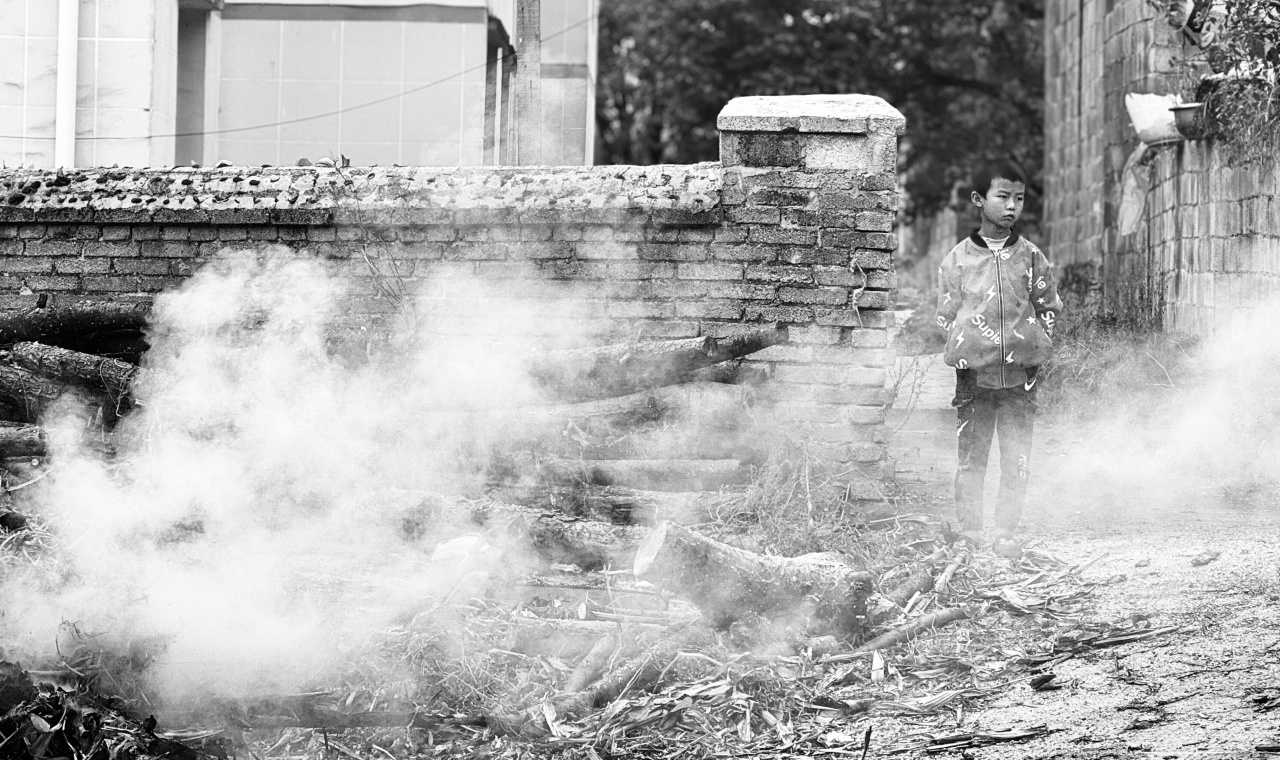
Xiaojun helps with farm work
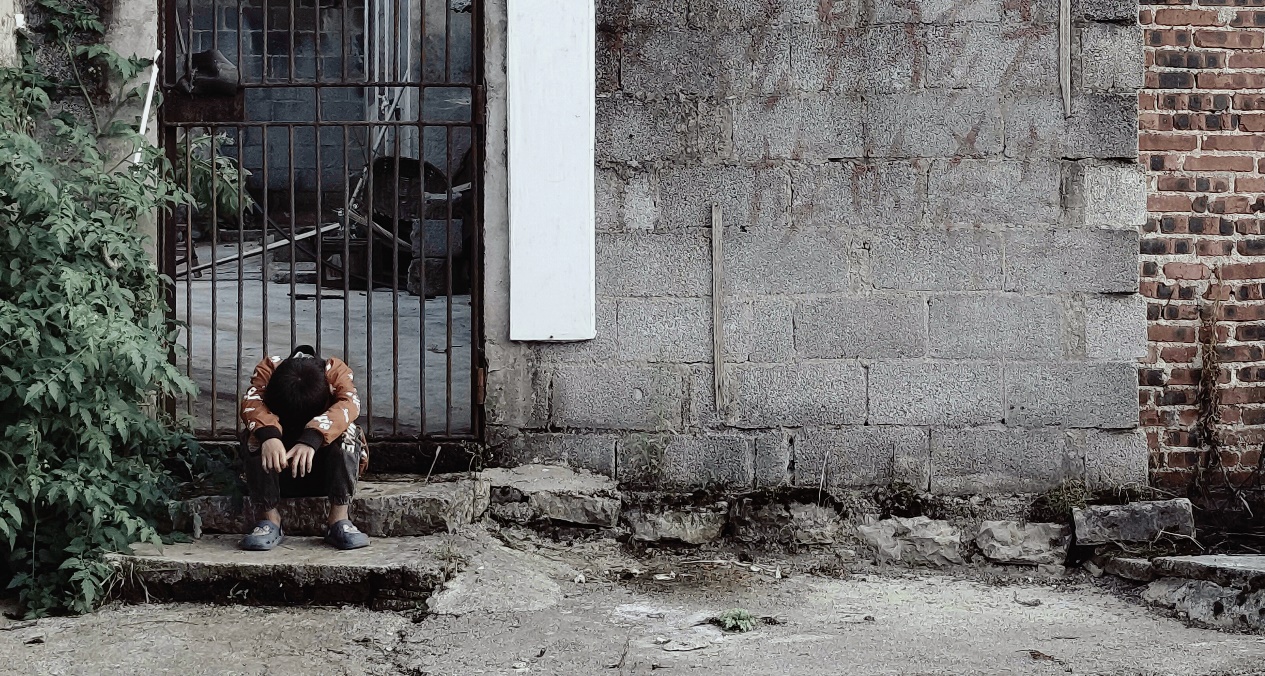
Xiaojun does not has any friends in the village
For these children, simply growing up safely is an uphill battle. Over the years, they must navigate one challenge after another, yet they lack a guiding hand to help them along the way. They carry emotional scars from their families, endure deprivation, and often find themselves isolated or mistreated by peers.
Everyone carries their own burdens, but fate has already favored so many of us. As we sightsee through the hills and valleys of city life, we should take a moment to witness what true hardship really looks like.
Meet these children who were born into adversity.
And you will see that these children are pure, kind, and full of gratitude—like unpolished agate hidden deep in the mountains. They still smile as they watch the sunrise, their eyes light up when they talk about their dreams, and they gesture excitedly when speaking of their passions. They shed tears when expressing gratitude to their teachers and find it hard to say goodbye when parting ways.
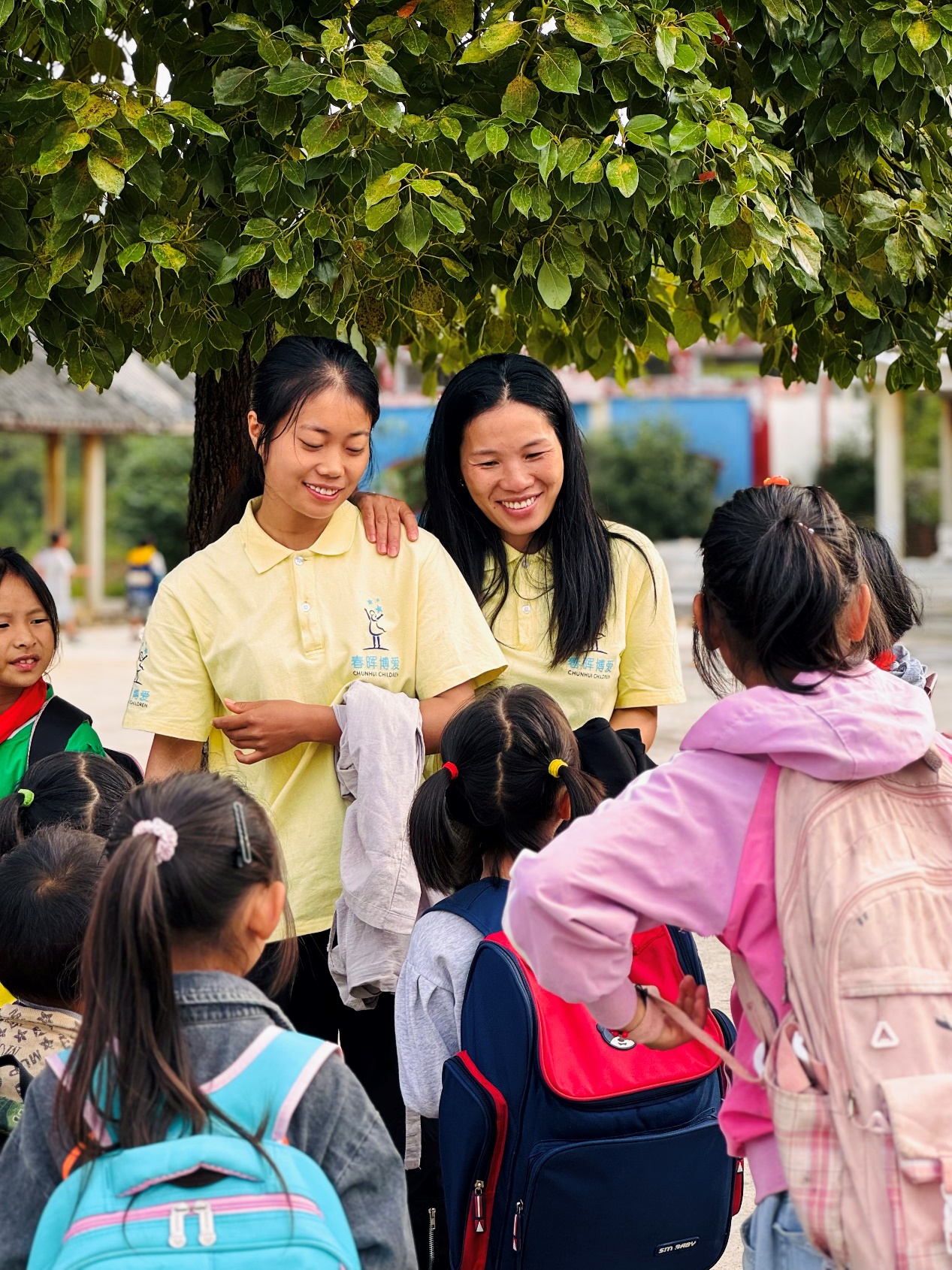
Chunhui social workers stay with the children
They deserve a better life. A better future.
Join the Chunhui Village Program for rural at-risk children. Together with our professiona-lly trained social workers, let’s stand by these children as they grow, and help them fight for a brighter future.
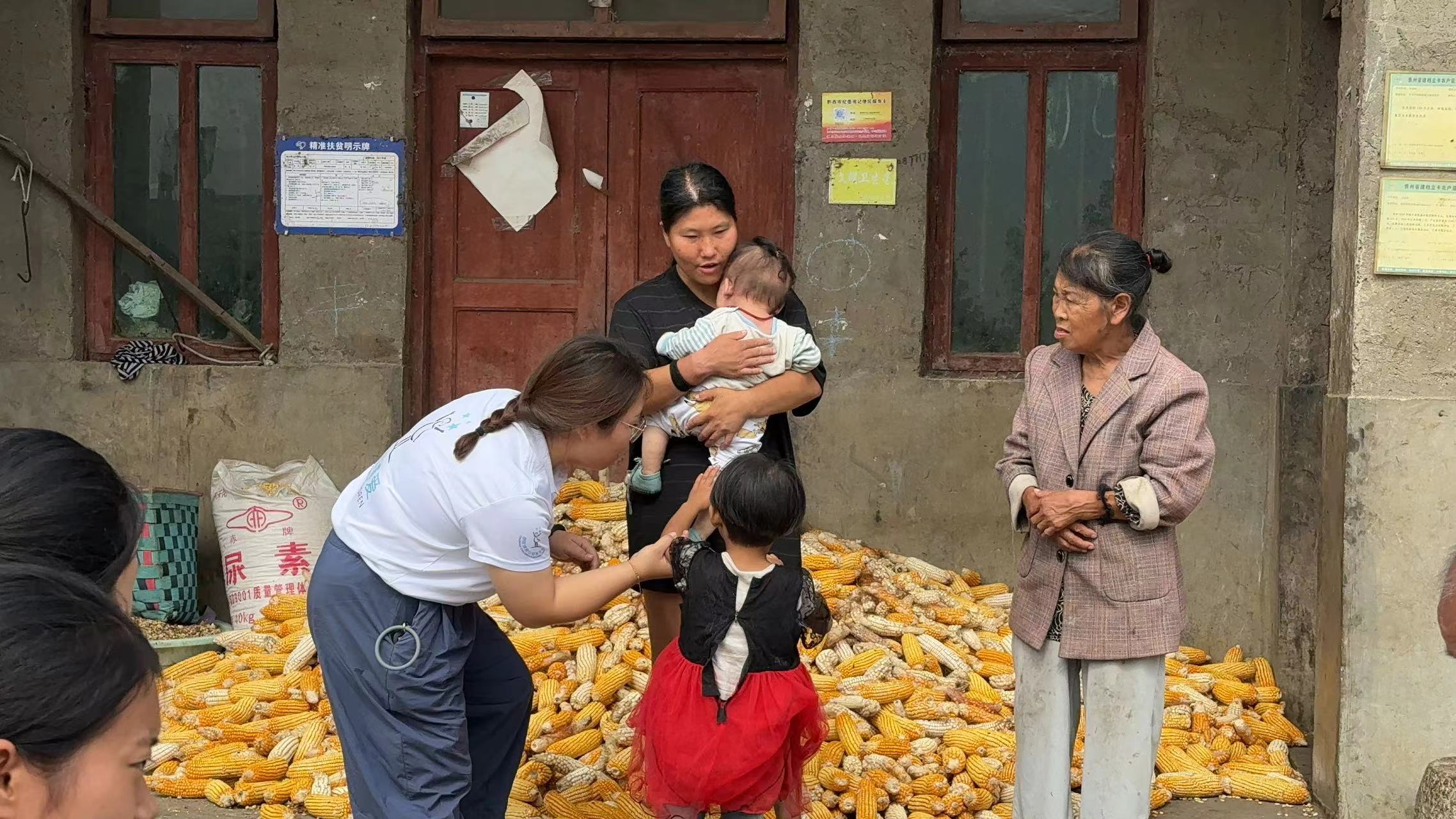
Chunhui social workers teach parenting skills in Jinjin’s home
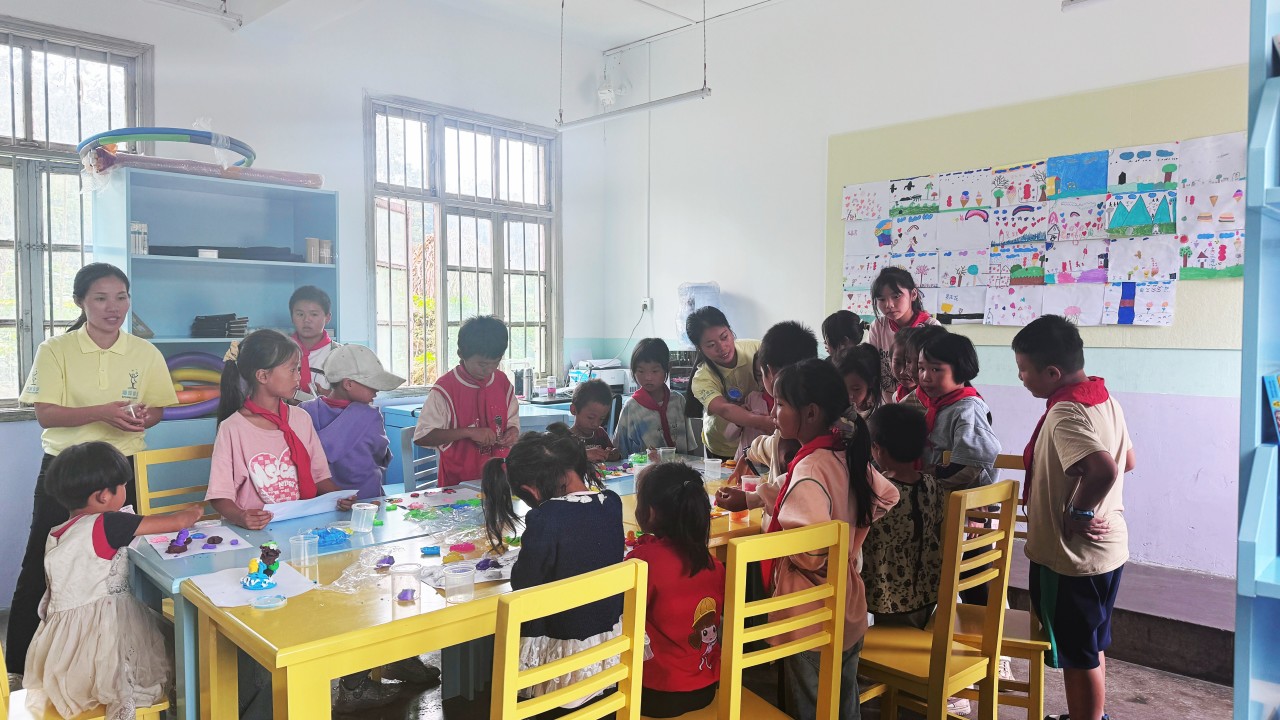
Children participate in an art activity at a child-friendly space of Chunhui Village Program